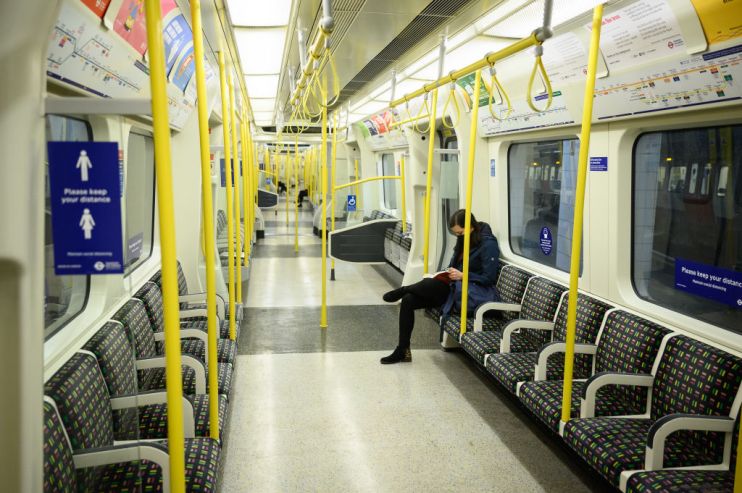Transport for London secures £1.08bn emergency funding deal

Transport for London has secured a £1.08bn emergency funding deal with the government to provide financial support during ongoing Covid-19 restrictions.
The latest cash injection, agreed with the Department for Transport, will cover the period from 29 May until 11 December.
The funding package is designed to contribute to the organisation’s revenue loss due to a sharp decline in passenger numbers during the pandemic.
As part of the deal, TfL has committed to delivering savings or net income of at least £300m this financial year.
The latest support follows two previous emergency support deals agreed in April and October last year, and takes total government support since the start of the pandemic to over £4bn.
“This £1.08bn financial package will support London and its transport network through the pandemic, and ensure it is a modern, efficient and viable network for the future,” said transport minister Grant Shapps.
In addition to the funding boost, the agreement sets out further measures to ensure TfL remains financially sustainable by April 2023.
These include accelerating the body’s existing efficiency and cost-cutting initiatives and identifying new sources of revenue. TfL has also agreed to carry out a review of its pensions scheme.
In a statement today mayor Sadiq Khan said the funding agreement was “not the deal we wanted, but we have fought hard to get it to the best place possible”.
“This short-term settlement is yet another sticking plaster so I will seek to work with the government over the months ahead to agree a longer-term funding deal for TfL that is both fair and right for Londoners and the whole country,” he said.
However, Mick Lynch, general secretary of the Rail, Maritime and Transport (RMT) was unhappy with the funding deal.
Lynch warned that RMT members will take “London-wide industrial action if necessary” to resist the “disgraceful stitch up of a deal”.
He said: “It is completely unacceptable for transport workers who have risked and in some cases tragically lost their lives to now be asked to pay this political price for the coronavirus.
“Attacks on workers’ pensions are wholly unacceptable while driverless trains are unwanted, unaffordable and unsafe.
“With funding only lasting until December, London is being held to ransom with a gun to its head rather than being given the long-term, stable funding deal that is necessary to rebuild the economy as we move out of lockdown.”
Meanwhile, Richard Burge, who runs the London Chamber of Commerce and Industry, said “questions remain about the government’s commitment to having a public transport network at the heart of London’s success as a global city”.
“Stop-start funding combined with a desire to constantly reduce the level of public funding undermines confidence in London and in the Government’s concept of a truly global Britain.”
The City of London Corporation was more welcoming of the funding agreement.
Its policy chair Catherine McGuinness, said:
“A world-leading public transport system is vital to London’s recovery and we welcome the news of this medium-term agreement. This announcement will be of huge relief to people and businesses that rely on public transport right across the capital.
“The funding not only ensures the continuation of vital transport services for residents, workers and visitors – but it also means that major projects, such as the Elizabeth line and upgrades to Bank station, will continue.
She added: “It is now vital that both sides deliver on the commitment made today to work together to identify a long-term deal by December this year. A sustainable funding arrangement will be key to London’s recovery from the coronavirus pandemic.”
Separately the government also said it would draw up an agreement with TfL and Hammersmith and Fulham to fund the reopening of Hammersmith Bridge.
This will initially be for pedestrians, cyclists and river traffic, with reopening for motorists dependent on costs.
Funding will be conditional on all parties agreeing to the costs, with the government paying no more than a third of the total bill.